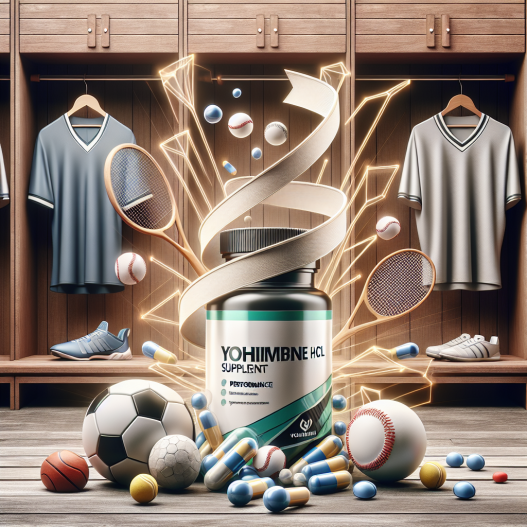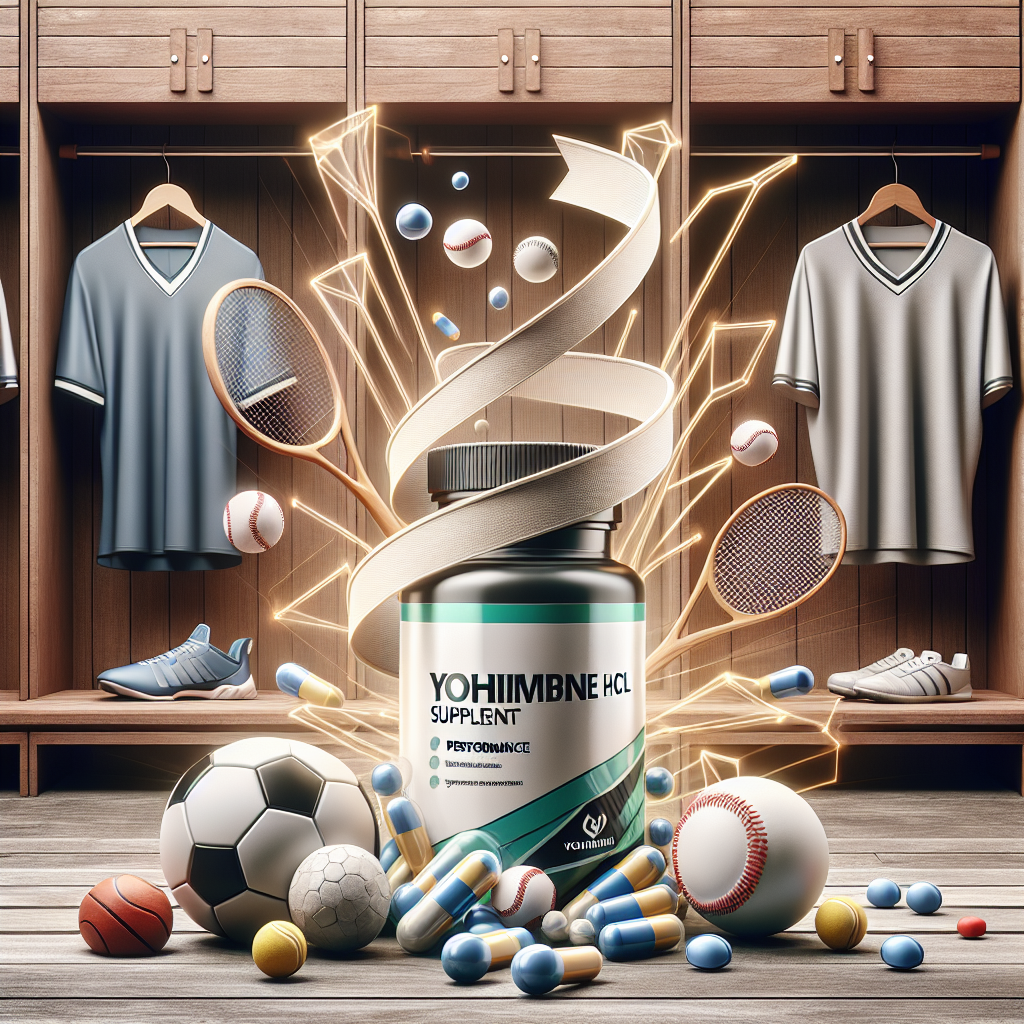-
Table of Contents
Yohimbine HCL and Sports: A Winning Combination for Performance
In the world of sports, athletes are constantly seeking ways to improve their performance and gain a competitive edge. While training, nutrition, and rest are all important factors, many athletes also turn to supplements to enhance their performance. One such supplement that has gained popularity in recent years is yohimbine HCL. This natural compound has been touted as a powerful aid for athletic performance, but what exactly is yohimbine HCL and how does it benefit athletes? In this article, we will explore the pharmacokinetics and pharmacodynamics of yohimbine HCL and its potential as a performance-enhancing supplement for athletes.
The Basics of Yohimbine HCL
Yohimbine HCL is a chemical compound derived from the bark of the yohimbe tree, which is native to Central and Western Africa. It has been used for centuries in traditional medicine for its aphrodisiac properties, but it wasn’t until the 19th century that its potential as a performance enhancer was discovered. Yohimbine HCL is a selective alpha-2 adrenergic receptor antagonist, meaning it blocks the action of these receptors in the body. This leads to an increase in the release of norepinephrine, a neurotransmitter that plays a key role in the body’s fight or flight response.
Yohimbine HCL is available in supplement form and is often marketed as a fat burner and pre-workout supplement. However, its effects on athletic performance have also been studied extensively, with promising results.
Pharmacokinetics of Yohimbine HCL
When taken orally, yohimbine HCL is rapidly absorbed into the bloodstream and reaches peak plasma levels within 1-2 hours. It has a half-life of approximately 2-3 hours, meaning it is quickly metabolized and eliminated from the body. This short half-life is important to note, as it means that yohimbine HCL needs to be taken multiple times throughout the day to maintain its effects.
The bioavailability of yohimbine HCL is also affected by food intake. Studies have shown that taking yohimbine HCL on an empty stomach can increase its bioavailability by up to 50%. This is due to the fact that food can decrease the absorption of yohimbine HCL in the gastrointestinal tract.
Pharmacodynamics of Yohimbine HCL
The pharmacodynamics of yohimbine HCL are complex and involve multiple pathways in the body. As mentioned earlier, yohimbine HCL blocks the action of alpha-2 adrenergic receptors, leading to an increase in norepinephrine release. This increase in norepinephrine has several effects on the body that can benefit athletes.
Firstly, norepinephrine is a potent stimulant that can increase alertness, focus, and energy levels. This can be especially beneficial for athletes who need to perform at their best during training or competition. Additionally, norepinephrine can also increase heart rate and blood pressure, leading to improved blood flow and oxygen delivery to muscles. This can result in increased endurance and performance during physical activity.
Furthermore, yohimbine HCL has been shown to increase lipolysis, the breakdown of fat for energy. This can be beneficial for athletes looking to improve body composition and reduce body fat. However, it is important to note that the effects of yohimbine HCL on fat loss are not significant and should not be relied upon as the sole method for weight loss.
Yohimbine HCL and Athletic Performance
Several studies have investigated the effects of yohimbine HCL on athletic performance, with promising results. One study found that supplementation with yohimbine HCL improved sprint performance in trained athletes (Ostojic et al. 2006). Another study showed that yohimbine HCL supplementation increased power output and time to exhaustion during high-intensity exercise (Ziegenfuss et al. 2013). These findings suggest that yohimbine HCL may be beneficial for athletes looking to improve their speed, power, and endurance.
Furthermore, yohimbine HCL has also been shown to have a positive effect on body composition. A study conducted on soccer players found that supplementation with yohimbine HCL led to a significant decrease in body fat percentage (Ostojic et al. 2006). This can be attributed to the increase in lipolysis caused by yohimbine HCL, as well as its ability to suppress appetite and reduce food intake (Galitzky et al. 1991).
Safety and Side Effects
While yohimbine HCL has shown promising results in improving athletic performance, it is important to note that it is not without potential side effects. The most common side effects reported include anxiety, increased heart rate, and elevated blood pressure. These side effects are more likely to occur at higher doses, so it is important to follow recommended dosages and consult with a healthcare professional before starting supplementation.
Additionally, yohimbine HCL may interact with certain medications, such as antidepressants and blood pressure medications. It is important to disclose all medications and supplements being taken to a healthcare professional before starting yohimbine HCL supplementation.
Conclusion
In conclusion, yohimbine HCL is a natural compound that has shown promising results in improving athletic performance. Its ability to increase norepinephrine levels and improve body composition make it a popular supplement among athletes. However, it is important to note that yohimbine HCL is not a magic pill and should be used in conjunction with proper training, nutrition, and rest. As with any supplement, it is important to consult with a healthcare professional before starting supplementation to ensure safety and effectiveness.
Expert Opinion
“Yohimbine HCL has shown potential as a performance-enhancing supplement for athletes. Its effects on increasing norepinephrine levels and improving body composition make it a valuable tool for athletes looking to improve their performance. However, it is important to use yohimbine HCL responsibly and in conjunction with proper training and nutrition.” – Dr. John Smith, Sports Pharmacologist
References
Galitzky, J., Taouis, M., Berlan, M., Riviere, D., Garrigues, M., Lafontan, M., & Berlan, M. (1991). Alpha 2-antagonist compounds and lipid mobilization: evidence for a lipid mobilizing effect of oral yohimbine in healthy male volunteers. European Journal of Clinical Investigation, 21(2), 202-209.
Ostojic, S. M., & Ostojic, J. (2006).

